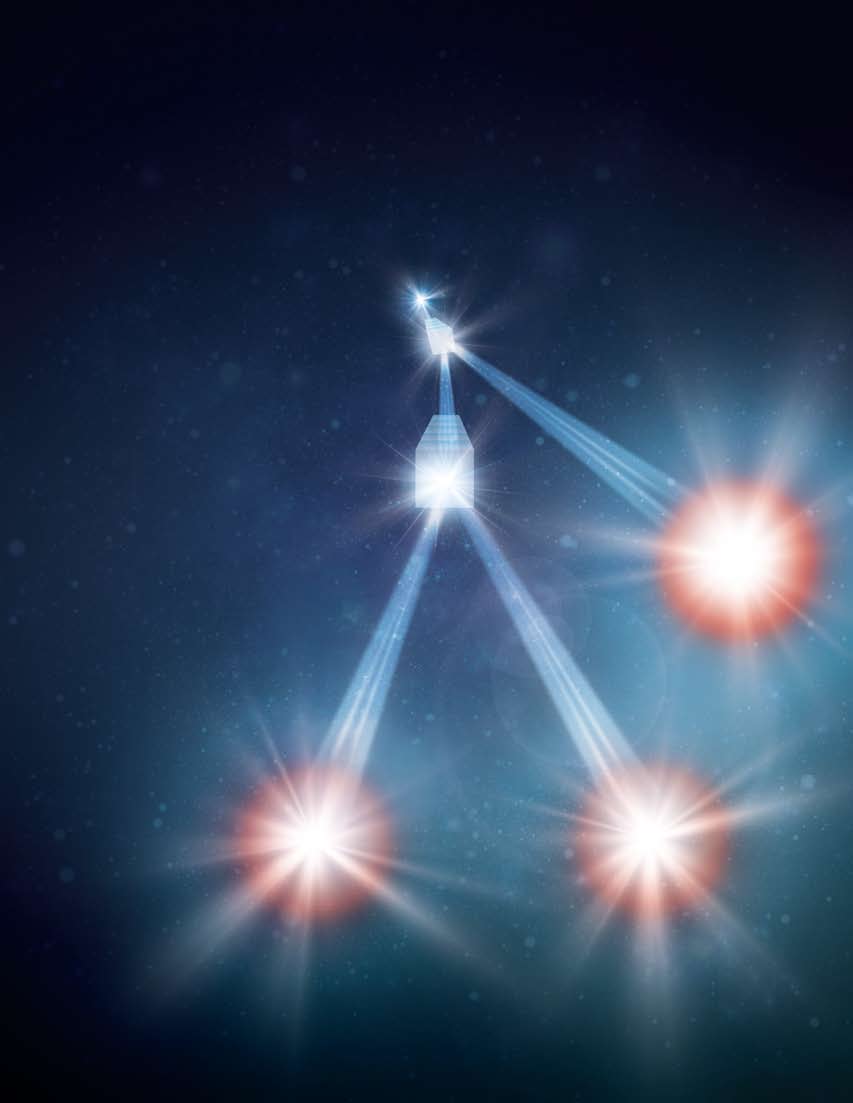Introduction We are an experimental quantum optics group run by Kevin Resch, based in the Department of Physics & Astronomy and the Institute for Quantum Computing at the University of Waterloo.
|
Experimental Bound Entanglement in a Four-Photon State by Jonathan Lavoie, Rainer Kaltenbaek, Marco Piani, and Kevin Resch was published today in Physical Review Letters.
Bound entanglement is central to many exciting theoretical results in quantum information processing, but has thus far not been experimentally realized. In this work, we consider a one-parameter family of four-qubit Smolin states. We experimentally produce these states in the polarization of four optical photons produced from parametric down-conversion. Within a range of the parameter, we show that our states are entangled and undistillable, and thus bound entangled. Using these bound-entangled states we demonstrate entanglement unlocking.
Continue reading Experimental Bound Entanglement in PRL
 Direct generation of photon triplets using cascaded photon-pair sources by Hannes Hübel, Deny Hamel, Sven Ramelow, Alessandro Fedrizzi, Kevin Resch, and Thomas Jennewein was published today in Nature. Direct generation of photon triplets using cascaded photon-pair sources by Hannes Hübel, Deny Hamel, Sven Ramelow, Alessandro Fedrizzi, Kevin Resch, and Thomas Jennewein was published today in Nature.
Parametric down-conversion is the most common source of entangled photon pairs. It uses a nonlinear optical process to split a pump photon, typically from a laser, into two lower energy photons. It is only natural to ask whether we can find an analogous process for converting one photon into three. Many different physical mechanisms have been considered for this, but none have proven feasible until now. Taking advantage of advances in nonlinear optical materials, we have demonstrated, for the first time, production of photon triplets using a cascade of two down-conversion processes. These photon triplets will find application in quantum information technologies and serve as an interesting new system for fundamental studies.
Popular news articles: Nature News, IQC homepage, PhysOrg.com, The Record.com, ScientificAmerican.com
Jonathan Lavoie has been selected for the 2010 University of Waterloo Dean of Science Award for his MSc thesis, Chirped-Pulse Interferometry: Classical dispersion cancellation and analogues of two-photon quantum interference.
The Dean of Science Award is given in recognition of outstanding performance in the Master of Science program. One certificate will normally be awarded annually to a master’s student from each department in the Science faculty in recognition of creative research as presented in the student’s thesis.
Update June 18, 2010: Jonathan received his award from Terry McMahon, Dean of Science, at a special lunch held at the University Club this week.
Continue reading UW Dean of Science Award won by Jonathan Lavoie
Soon to be PhD candidate Deny Hamel has won the NSERC Vanier scholarship for his proposal, “Realization of an efficient source of multiphoton entangled states using novel nonlinear materials”. Congratulations Deny!
Continue reading Deny Hamel wins top NSERC graduate scholarship
Experimental Feedback Control of Quantum Systems Using Weak Measurements was published in Physical Review Letters. This experiment was performed in Andrew White’s group at the University of Queensland. The work is the result of a collaboration involving researchers from Australia (Griffith U, U. Queensland, U. Sydney), the United Kingdom (U. Bristol), France (Institute d’Optique), and Canada (IQC/U. Waterloo).
Continue reading Quantum control using weak measurements in PRL
Our article, Cluster-State Quantum Computing Enhanced by High-Fidelity Generalized Measurements, was published in Physical Review Letters. This work was done with Terry Rudolph at Imperial College and Gregor Weihs at the University of Innsbruck.
We introduce and implement a technique to extend the quantum computational power of cluster states by replacing some projective measurements with generalized quantum measurements (POVMs). As an experimental demonstration we fully realize an arbitrary three-qubit cluster computation by implementing a tunable linear-optical POVM, as well as fast active feedforward, on a two-qubit photonic cluster state. Over 206 different computations, the average output fidelity is 0.9832±0.0002; furthermore the error contribution from our POVM device and feedforward is only of O( ), less than some recent thresholds for fault-tolerant cluster computing. ), less than some recent thresholds for fault-tolerant cluster computing.
11/12/09 Our article Cluster-state quantum computing enhanced by high-fidelity generalized measurements was published in Physical Review Letters.
Fall 2009 Devon Biggerstaff and Jonathan Lavoie successfully defend their MSc degrees. Congratulations!
Continue reading News archive 2009
Robert Prevedel has joined the IQC Quantum Optics and Quantum Information group as a Post-doctoral Fellow. Robert has just recently finished his PhD at the University of Vienna under the supervision of Anton Zeilinger. Welcome Robert!
|
|

